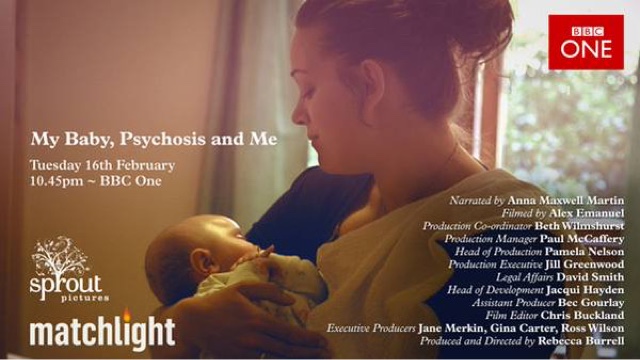Verbatim notes from Guardian Masterclass with Lionel Shriver
(4 April 2016). Huge thanks to my long-suffering husband for bagging me a place on this, as a very early and thoughtful birthday treat!
Merging Fact with Fiction
Novels often incorporate non-fiction elements /
research. There is an art to this!
How is the use of
non-fiction helpful?
- If writing is intended to be realistic (i.e. not fantasy genre) then non fiction details help create “verisimilitude”, pinning the story to a real time and place
- If details are off, then readers’ faith in the author will be destroyed (“the spell is broken”) – factual content needs to be accurate for it to be beneficial
- Authors get lots of reader credit for getting details right
- For example, a good route into creating well-rounded and believable characters is in thinking carefully about their jobs/occupations and doing requisite research (as you would do if choosing a profession in real life!)
- Details like this come back to the writer in spades, by offering up potential conflicts, worries, protagonists… Too many novels take a person’s work-life for granted, characters become too domestic. (But DON’T make your characters writers – writers don’t do anything!)
- Use non-fiction to edify and educate readers – they are grateful for this, especially those that struggle to digest traditional non-fiction. “Sugar coating the facts” of an issue or topic.
- Even more important is self-edification. Enrich your own life as you write. Start to care about things.
- With caution, you can use fiction to make a social/political point or champion a cause. But you may have to disguise this a little – don’t preach! Nobody likes being lectured to.
Some “Fields of Authority”
that Shriver has used in her work:
- Anthropology (in “Female of the Species”)
- Rock n Roll drumming and US immigration system
- Northern Ireland politics/troubles ("Ordinary Decent Criminals")
- Population control/demography
- Inheritance law/disputes
- Professional tennis (“Double Fault”)
- Foreign correspondents
- School shootings/ Attachment Disorder (“We Need To Talk About Kevin”) (Interestingly, when I questioned Shriver about whether she did much research into child psychology for Kevin, she answered that actually she didn’t want to get too hung up about that. The mother in this book didn’t seek professional advice or get any real answers about what (if anything) was wrong with Kevin, or their relationship, so she felt this gave the book more realism/authenticity).
- US health care system (“So much for that”)
- Economics / dystopian economics (“The Mandibles”, forthcoming).
Actually doing the
research – some tips:
·
May be useful to “page through” some academic
journals – try to find out what the most esteemed journals are in the field and
where the main academic divides lie.
·
Remember: make up the people/places/things that you need to author (i.e. have complete control over – they are then in your
complete authority)
·
Shriver claims she is not as obsessed with
actual settings as other writers, and
tends to fall back to places she knows/has lived in (e.g. NYC, London, Boston,
Raleigh). But, even within a city such as London, there are LOTS of different
worlds to explore. Walk around a bit!
·
Use what you know. Any unusual or faintly interesting experience
is gold dust to the writer.
·
Look at places with a fresh eye when using it
for fiction. Carry a notebook everywhere. Take photos.
·
Internet is normally primary resource – but BEWARE
the Wikipedia novel! It’s lazy and doesn’t
work. Don’t just “dump” information into
your work – this is as bad as copying and pasting.
·
Use google maps (especially Street View) to get
detailed information on places (and also Trip Advisor reviews, photos, etc)
·
But original experience (i.e. leaving the
house!) is very important. Sensory
information can’t be gleaned over the web alone.
·
Make a commitment
to the topic. Buy an expensive book
in the subject area.
·
Create little individual libraries for each book
you write, as a tribute to your hard work.
·
Don’t procrastinate. Don’t use research to put off writing the
book.
·
Be active in your research, like writing in a
notebook.
Other points:
·
When something requires too much explanation, it
can distract from the story.
·
You can use a “Glossary of Troublesome Terms”
(see “Ordinary Decent Criminals”!) to provide background information. But do it in a classy, entertaining, unique
style. It should be part of the book.
·
Don’t neglect libraries. Not everything is on the internet (especially
for historical topics)
·
Your job is to tell a story. Don’t weigh it down. Be judicious.
·
Don’t be a show-off. Be impressive without trying too hard.
·
Treat the audience as an equal.
·
Be artful. Don’t duplicate.
·
Try not to use information that will quickly
date a book – try to write about something timeless
or universal (even if you’re writing about something very topical, it can
have a universal message). For example, “So
much for that” is no just about 2007 healthcare in the US, it is also about
what it’s like to be terminally ill and facing death.
·
Remember – enthusiasm for your subject is
contagious!
·
Deliver your information with style and attitude. E.g. an extract in “Kevin” delivers some
facts about real school shootings with accuracy, but also infused with (the
mother’s) emotion. The facts are
delivered in authentic dialogue. This
makes it less “authorial” and more animated.
In dialogue, people trade in information, usually to a purpose.
·
Make it funny!
·
Inject your own
perception/acuity/thoughts/interpretation – what do you conclude?
·
Disguise information as if your reader knows it
already. Flatter them.
·
Try to let some other views/dimensions into the
book, even if you disagree.





